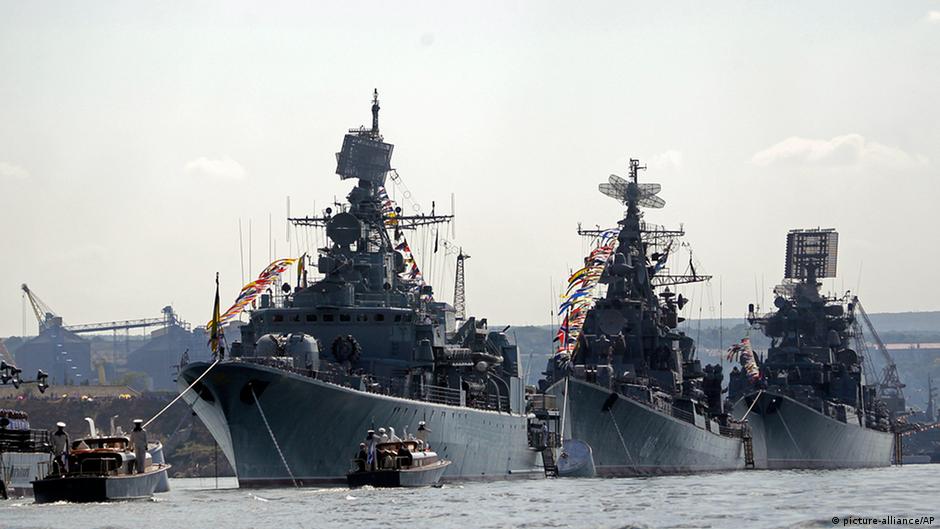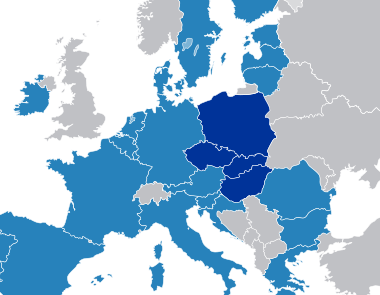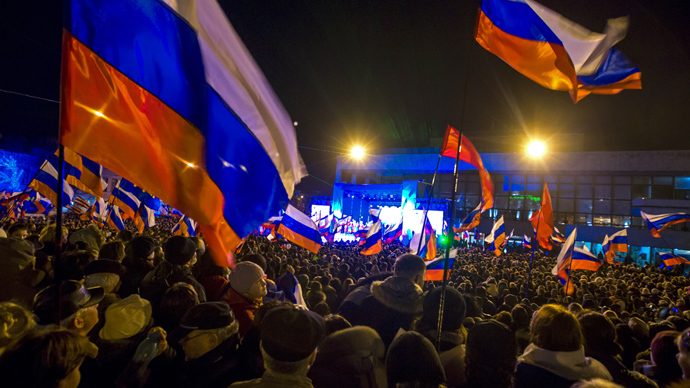Well, after deciding I was too busy to blog, I realized I was just talking about this stuff with my friends and repeating myself ad nauseam . I've been able to happily ignore a lot of stuff--even Syria has only been so captivating--but the Great Game in Europe has finally brought me back into the ring.
So Russia has invaded Ukraine, post-revolution. Interestingly, this revolution seemed initially to be
less damaging/dangerous than the first one (The "Orange" Revolution of 2004) but it's provoked a much heavier response.
There are only three questions that are
really interesting:
1) What is Russia's planned endgame?
2) How does Russia think the rest of Europe/US will respond?
3) How will they
actually respond?
Russia's Planned Endgame:
Sadly I think this is actually a bit of an open question, but with a likely answer.
The most likely answer is that Russia wants to see a settlement in which Crimea (vast majority Russian descent and Russian loyalty) has enough autonomous power to maintain a treaty with Russia for Russia's use of the Sevastopol naval port without Kiev's ability to veto. This seems extremely narrow an aim, but I think it's the most "concrete" one they want to get out of it. It also seems obvious given the fact that they're specifically in Crimea and not any other part of the country (no matter how pro-Russian or not), and the geopolitical motive there (more below on that).

Obviously Russia also wants to make clear that its periphery is not allowed to install pro-EU governments. But starting a war to demonstrate just that is risky--to get involved with military action, one has to have not only a goal, but a clear
endgame--something the US and its allies utterly failed to do in both Afghanistan and Iraq, to devastating effect (though it wasn't the only mistake in both instances). The well-defined endgame, the thing that lets Russia pull its troops out and declare "victory" without having to indefinitely occupy Ukraine, is that agreement.
This is eerily similar to Georgia in 2008, by the way, in which Russia quickly invaded and asserted a stronger South Ossetia autonomous zone with Russian military presence to "protect its people."
I really do think they're doing the same darn thing here.
The reason, by the way, that "keeping the Sevastopol port" is important enough to merit a war, is that Sevastopol is the only warm-water port the Russians have left in the European theatre. If they lose Sevastopol, they have literally no place to launch ships that doesn't freeze in the winter. It essentially knocks them out as a naval power, which is actually quite significant. There's more in my
old post from 2008 on why Ukraine and Georgia are so bloody important--go re-read if you want to.
So in short, they'll have the Crimean parliament (happily) sign that they'll keep the port and welcome Russian military access. They'll tell Kiev that Kiev has to relent on the issue or life will get worse, after kicking around the Ukrainian military a bit.
Importantly, they will
not march on Kiev and won't try to annex Crimea completely, as even in the current US/EU political climate, it will be such a clear "crossing of the line" that it would merit a clear military response.
How Does Russia Think the US/EU Will Respond?
Not to make too many allusions to German expansionist aggression in the 1930's, Putin has seen the US and EU in Georgia in 2008, and "they are worms" to him. He played the West like a fiddle then, and the world leaders that could (and easily, given the military disparity) oppose him watched with impotence.
Putin is counting on further impotence here. Obama has proven to be not too willing to rock the boat--he seeks a very broad support base of allies before making a move (why he went to Libya but not Syria, and why he's still in Afghanistan). Russia's oil and gas chokehold on Europe will likely make Germany and France hesitate--during a war, Russia could cut gas supplies and prop up Gazprom from the federal treasury (which is fairly hefty) while Europe's lights go out. It's a major threat and the US isn't quite prepared to supply the rest of that gas given current infrastructure.
So ultimately, Obama is likely to have a lukewarm reception from Germany and France on getting NATO involved, and Putin is betting on him not pressing it.
So there will be a flurry of diplomatic activity, of course, but I think Putin honestly believes there will be no military action against Russia whatsoever from outside of Ukraine--just like in 2008.
How Will the US/EU Actually Respond?
If I actually knew the answer to this, I'd be in the War Room in the White House right now, so I have to speculate wildly on the matter.
If you remember my post about the
Visegrad 4 and the Blocanization of Europe, you'll recall that the V4 (led by Poland) formed out of fear that NATO was too weak to protect it from Russia, and they'd be banking on support from the US and UK independently of the rest of the continent.
Now is absolutely the time for them to be tested. The V4 doesn't include Ukraine (it's Poland, Czech Republic, Slovakia, Hungary), but if Ukraine fell very EU (or split in two), we would probably see a V5. The V4 is going to see unchecked Russian aggression as an
existential threat: if Europe won't defend Ukraine from an unprovoked invasion, would they defend the Czech Republic? Would they defend Hungary? Ultimately, EU/NATO/US inaction here would ultimately cement the V4's belief that they can depend only on each other.
If the V4 sees NATO as impotent, I actually think it's likely that the V4 will take matters into its own hands. Crazy as it sounds, I believe the Visegrad 4 is going to mobilize once Ukraine is inevitably hung out to dry by more powerful allies. In their minds, the principle of Deterrence--which has kept Europe mostly peaceful for 70 years (which is an absurd amount of time in Europe's history) must hold, and they will respond, even knowing that they will not win alone.
I think the V4 will move troops to the border and threaten war if the US/NATO don't intervene. There will be a real risk of a wider European war breaking out.
At that point... I'm just not sure. Frankly, the outcome is going to depend
entirely on the will of the United States and, primarily, its president. If the US is willing to fight an air war in Russia (invasion is out of the question) and mobilize aircraft carriers to the Black Sea and occupy it there, I think Russia will pull back... and the West will score a major victory in keeping Russia contained. This move would be provoked more by the V4 (to prevent a European land war) than by Russia itself (where Obama would tend to try to "jaw jaw" before he "wars war").
But a lot of things could hold the Americans back. Obama is unpopular, debt is much higher than Americans are comfortable with. The Republican party is not only generally prone to oppose whatever Obama tries to do for the sake of being contrary, but it is becoming increasingly isolationist (something we saw in the Libyan intervention).
Wrapping Up:
So I just don't know. Russia could well get away with it and sadly I think this is most likely. I know normally I don't take particularly strong position on who is good and who is bad. But I do believe that the principle of Deterrence has kept Europe safe for a very, very long time, and I am worried to see it violated with impunity.
We will see. I would put odds on Russia getting away with it, but the US (even without the EU) has such an overwhelmingly powerful naval/air force that if it
decided to get involved, Russia would pull back quickly.
It's all a matter of will.












